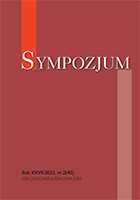
We kindly inform you that, as long as the subject affiliation of our 300.000+ articles is in progress, you might get unsufficient or no results on your third level or second level search. In this case, please broaden your search criteria.

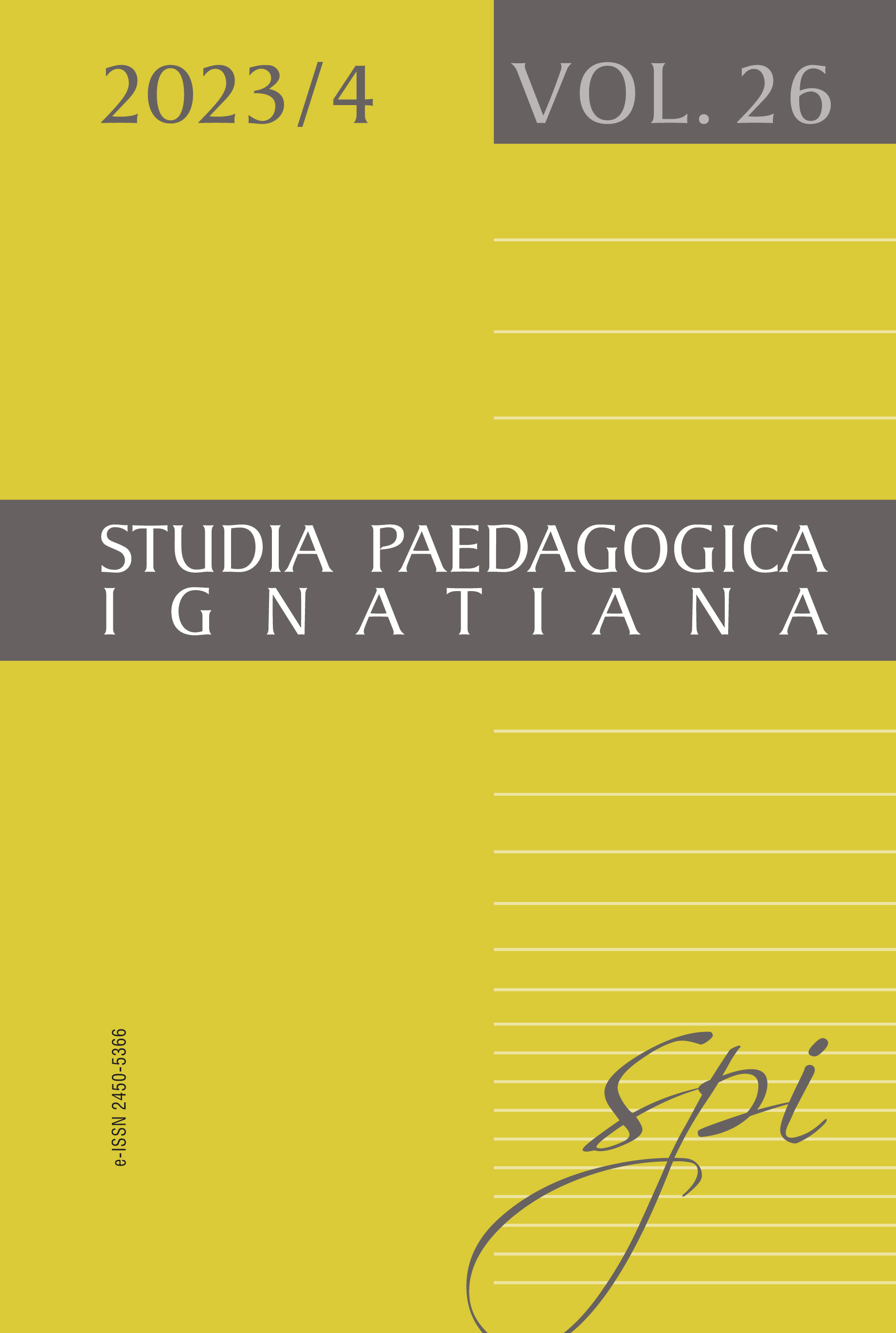
The paper focuses on the personal model role in upbringing towards higher values. The objective of the text is to answer the following question: How can the example of Blessed Father Jerzy Popiełuszko be used in raising the youth to be mature Christians?To analyze the problem, the author uses Marian Nowak’s concept of Christian maturity. The method she uses is historical/pedagogi- cal biographic analysis. Selected studies and source texts prove that even at an early stage of his life, Popiełuszko fulfilled the Christian maturity criteria specified by Nowak: he envisioned a truly human life and permanently practiced features that facilitated its realization, such as scrupulousness, authenticity, and courage. He fulfilled these criteria as a Christian for whom the ultimate meaning of existence is salvation. It is worth remembering this role model and raising young people according to Nowak’s criteria. It may be helpful to show some dramatic events from Popiełuszko’s life, which may serve as inspira- tion on how to develop Christin maturity.
More...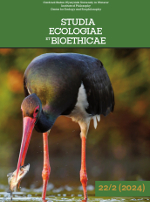
The topic of this paper are sustainable habits and attitudes of the religious population in Croatia regarding the Encyclical Letter Laudato Si’. Empirical work is based on CRO Laudato Si' project using survey method on a non-probabilistic sample of the religious population in Croatia, which in this paper are operationalized as active and occasional believers according to their regularity of attending religious ceremonies (N=1305). The analysis showed that active believers have a more pronounced sustainable profile (as they throw away less food, separate waste more, show greater readiness for saving water, electrical energy and have a more pronounced critical attitude about the need for greater application of the Laudato Si' within the Church and society) than the occasional believers. Given the nonrepresentative sample, the presented data cannot be generalized to the religious population in Croatia, shaping its fundamental contribution in stimulating future scientific analyses and reflections on the Church's relationship with religious practices, and emphasizing active believers as potential social leaders of sustainable lifestyles. Therefore, the sustainable habits of the surveyed believers represent a relational good and serve as the basis for building a culture of moderation that respects key principles of Catholic Social Teaching. In that perspective, we conclude that it is important for the Church to speak more often about the socio-environmental crisis and encourage strong responses to the crisis at all social levels, from households and families to the macro level.
More...
Since the earliest civilizations, divination practices and occult fortune-telling manifestations have been an enduring component of worldwide culture. This disturbing phenomenon continues to proliferate today, gaining lots of appreciation, contaminating the values of traditional religion. The Romanian peasant subsists in a comprehensive perception, on the threshold between physical existence and spiritual consciousness. As a consequence of economic insecurity and social uncertainty, many inhabitants of the rural areas choose to preserve pagan beliefs and magic rituals, hoping to obtain knowledge about future events. It is certain that many occult expressions become normative for the believers and acquire a more important role than the religious cult itself. The present study targets to identify the most prominent forms of future prediction, favoured and accepted by the provincial population. It will be demonstrated that deception is almost always involved, leading to trickery and extortion of the simple-minded. Orthodox mission is consistently positioned against the occult, conservating the reasoning of the Great Fathers of Orthodoxy and many other Church scholars that counteredthe malpractice of divination.
More...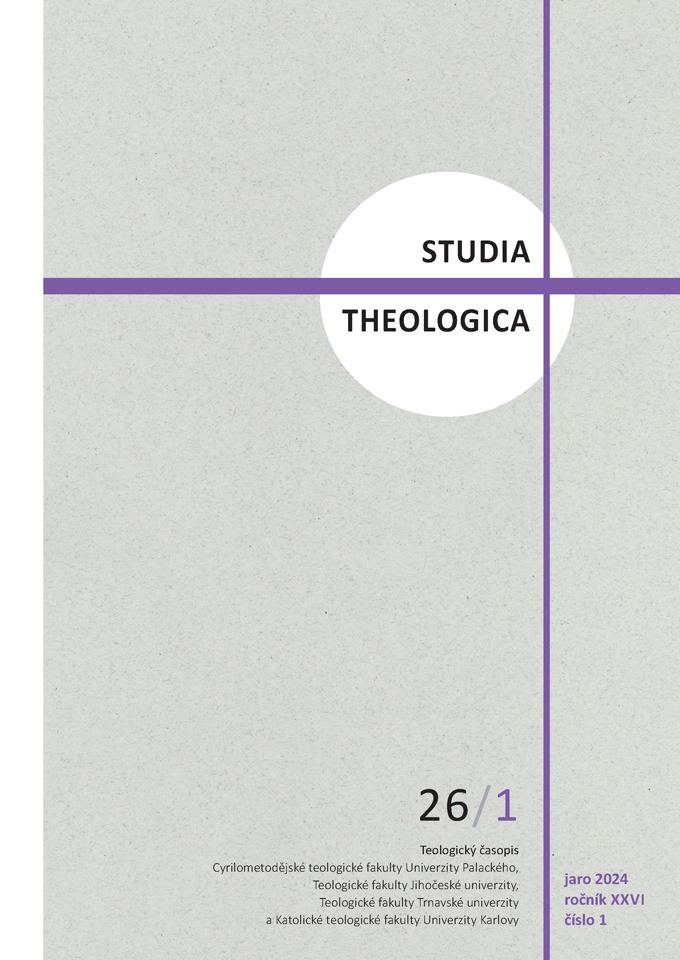
The paper discusses the legacy of the ecclesiastical community preserved in the ecclesial memory (tradition) intended for all times, and therefore also for the “challenges of today” inscribed in the particular “signs of the times”. Without a doubt, this includes the desire of western man for a content, happy, and fulfilled life in all aspects of human life. The main aim of the article is to provide the most plausible answer about the meaning of man’s existence and the paths to its fulfilment not only to the believer living in a certain cultural framework, but also to everyone who asks this question. Our answer cannot help but emerge from the Trinitarian mystery, which was, still is and will always be the foundation of proclamation and of all new pastoral paths, even for the twenty-first century Church, world and man. After all, if it is true that the essence of the triune God is both universal union and unification, it is the trinitarian relational Being that establishes the foundations for a new humanity. The mystery of the divine Trinity is thus implicit in both chapters of the lecture, in which we speak of a new Christian identity, of the phenomena of “the silent God”, and ofthe mission of practical theology as a theology of life, that is to say, a theology that makes man’s encounter with God possible.
More...
In the biblical tradition, justice and mercy form the basic structure of God’s will for human life and community. They also determine the contents of the social activity of the church, diakonia. From the theological point of view, they form a unity in God, nevertheless in the reality of this world they often exist in mutual tension, and in the history of a diaconal practice the emphasis on one or the other undergoes changes. This study aims to define a theologically justified perspective of the relationship between justice and love, respectively mercy, that can serve to orientate within the problems of Christian social activity. The study starts from a Protestant point of view, where the indicated problem takes on a special intensity, and it starts from the concepts of four selected confessionally evangelical authors: Emil Brunner, Reinhold Niebuhr, Paul Tillich and Paul Ricoeur. There is a need for a dialectical point of view at the relationship between justice and mercy, awareness of their inner unity as well as the ongoing tension between them. In the sense of the Lutheran distinction between secular and spiritual regiments, respectively gospel and law, it considers it necessary to balance them within the diaconical practice of the Church.
More...
The article presents the results of the author’s pastoral‑theological thesis Synodality and a Mission of the People of God : a Transformation of Pastoral Practice in the Diocese of Brno as a Response to the Change of an Era (2023). The thesis was questioning how the Church should respond to the present change in epoch and especially to the weakness of the Christian testimony of the Communion of the People of God in the past and in the present time. Critical theological research, including the Magisterium of Pope Francis, and pastoral discernment demonstrate that the best answer is a synodal renewal. The work consequently offers an outline of the basic concrete features of this renewal. The work offers these results as an inspiration for other particular churches in the Czech Republic.
More...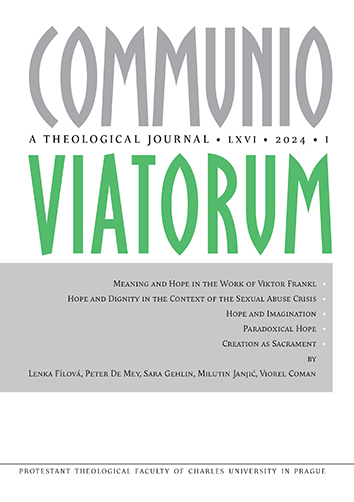
This article looks at the sexual abuse crises that have hit churches around the world, especially the Roman Catholic Church, and asks if it is possible to talk of hope in such circumstances. It asks whether theology has a role to play or a responsibility for the crisis, and what sort of church is called for in the light of it. The article ends by suggesting possible places of hope that do not seek to impose on the survivors.
More...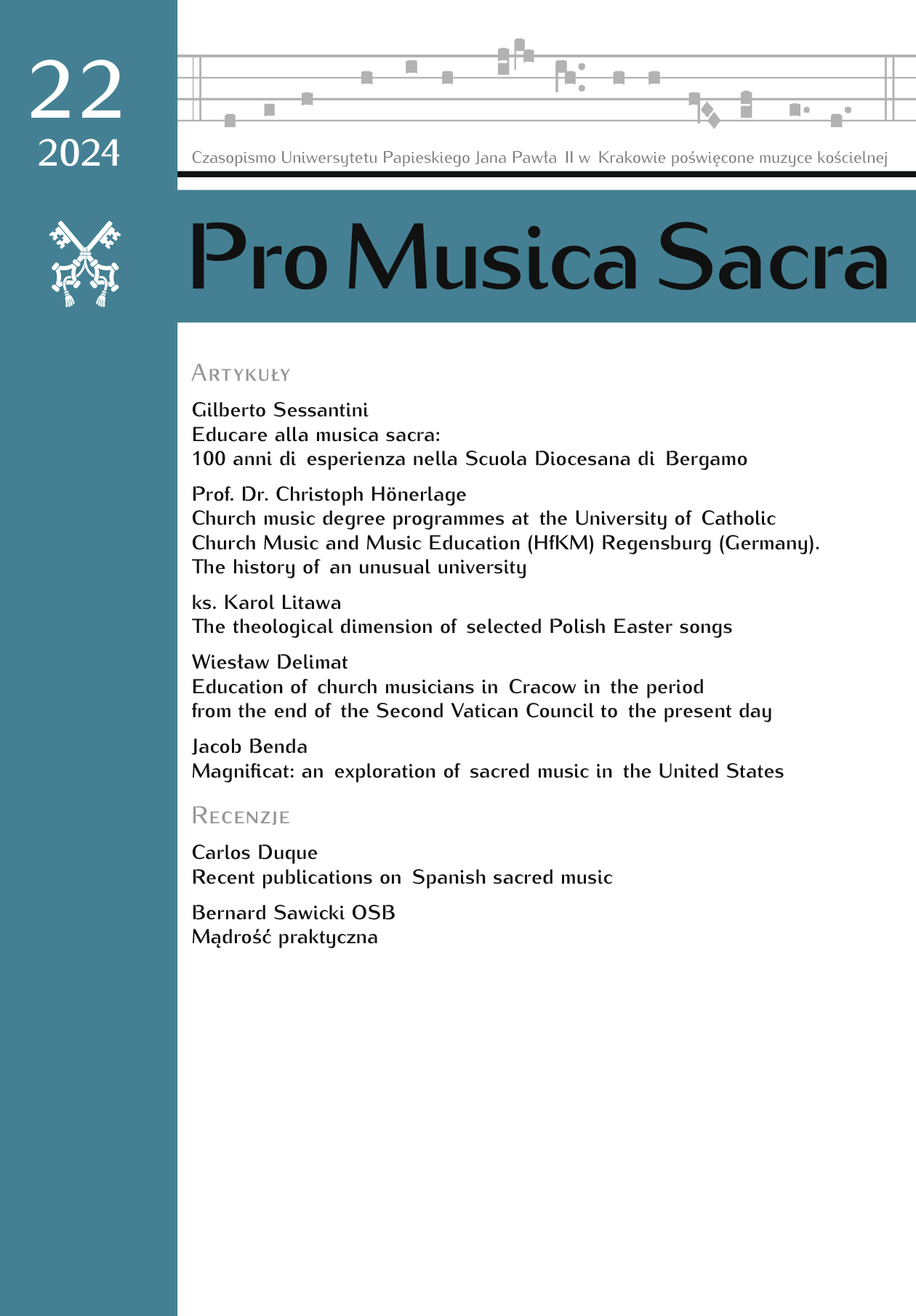
The training of church musicians in Cracow in the period after the Second Vatican Council became one of the important tasks of the institutional Church associated with the post-conciliar renewal of the liturgy. In the 1970s, the training of church organists here took on a systematic and organised character. The activities of the Archdiocesan Organist’s College, as well as the Church Music Section at the Liturgical Institute, were constantly evolving. Over time, their tasks were taken over by the Archdiocesan Organist School (now the Archdiocesan Music School) and the Pontifical Academy of Theology in Krakow (now the Pontifical University of John Paul II in Krakow). Since 1997, the Academy of Music in Cracow has also been educating church musicians. At present, Cracow and the Archdiocese of Cracow offer many opportunities of professional music education, which are eagerly used by organists, choir conductors, as well as people passionate about Gregorian chant, liturgical composition and the broadly understood animation of the musical life of churches. The immediate impulse for writing this article was the 25th anniversary of the Cardinal Franciszek Macharski Archdiocesan School of Music, celebrated in 2023, which is an important link in the series of educational institutions thanks to which the level of education of church musicians is constantly rising.
More...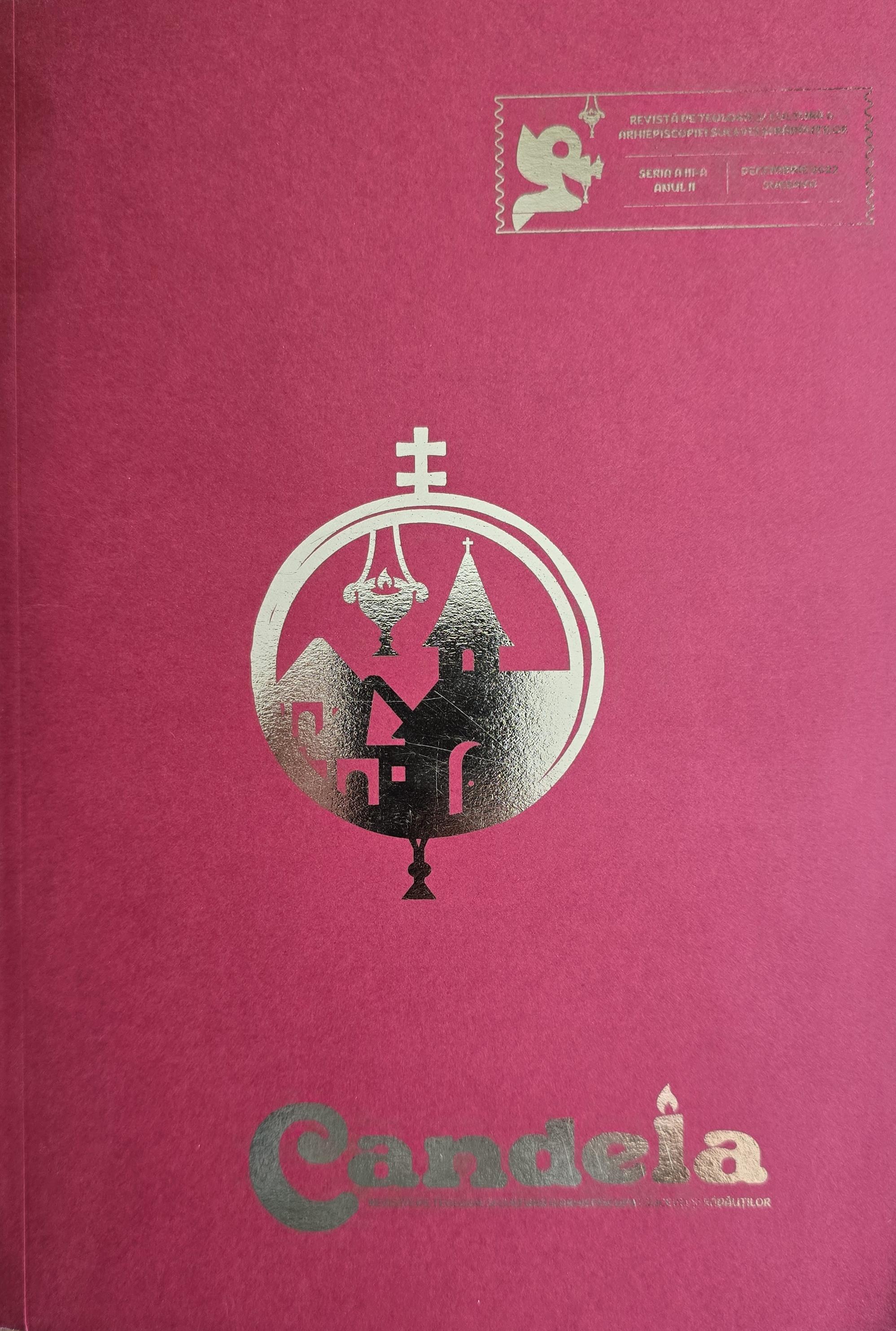

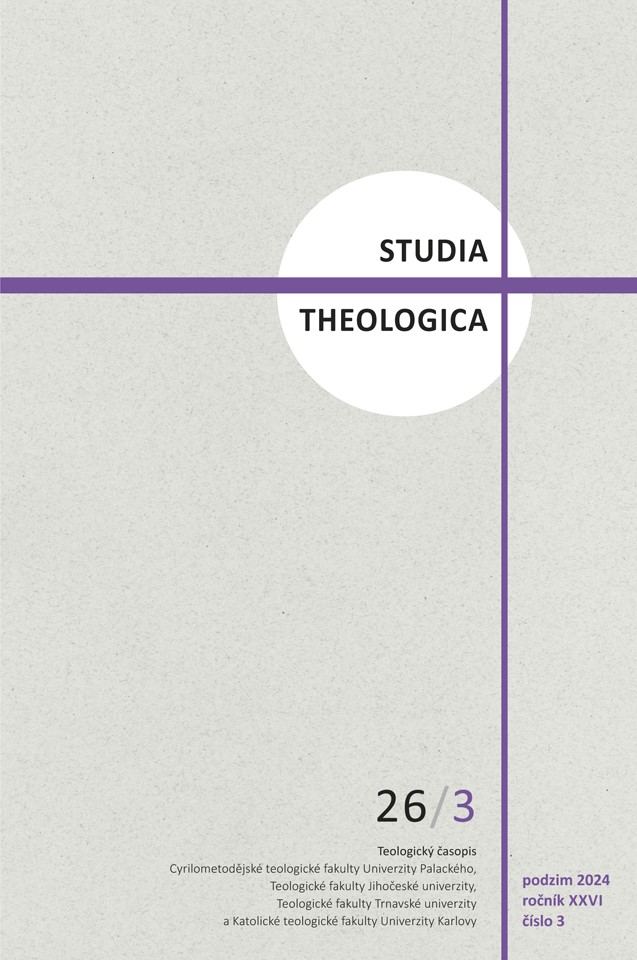
The “Suggestions for Refining Theological Terminology in Slovak. Part V.” project deals with the incorrect wording of the term ‘spouses’ in relation to the ministers and recipients of the sacrament of Matrimony. Several magisterial, liturgical and theological works contain expressions such as “the spouses receive the sacrament of Matrimony”. The author of the study argues that the ministers and recipients of the sacrament of Matrimony should be called “the engaged couple”. They should be referred to as ‘spouses’ only after the matrimonial consent, as indicated in some works.
More...
This text will consider the pluralist-universalist perspective proposed by Protestant theologian John Hick and how it offers salvation and the Orthodox response offered by Dumitru Stăniloae's eschatological theology, which nuances and offers a pertinent response to the universalist disputes of the 20th century. The common ground from which the two theologians build their vision is that every human ontologically falls within the boundaries of the same God. Thus, Dumitru Stăniloae starts from the idea that all mankind of different faiths knows, to some extent, the Son of God, the Logos who created before the Incarnation, since the Logos "is the true Light that enlightens all man, who comes into the world" (John 1, 9), and John Hick is of the opinion that all these faiths are nothing but various soteriological spaces in which man can find salvation. What differentiates the two is the way they develop their eschatological vision. John Hick is of the opinion that in today's world, a pluralistic consciousness is absolutely necessary, God's love has a universal purpose, He cannot restrict this redemptive encounter with humanity. On the other hand, Dumitru Stăniloae is of the opinion that salvation is acquired through asceticism, since nature is a divine gift that needs to be processed, and the ascetic's effort is also doubled by the love of God that welcomes him. In his conception, man does not acquire salvation as a universal gift, even though God's love desires it, and he is even able, by virtue of his freedom, to refuse this communion.
More...
The great popularity and extraordinary possibilities the Internet offers people in the field of information and communication have made the Internet the subject of the Church’s in-depth reflection as an important tool in broadly understood pastoral activities. This article contains a discussion of the effects of this observation and demonstrates how the Church uses the Internet and all Information and Communications Technology. Finally, we will indicate the positive aspects and difficulties facing the Church now operating in the Digital Age. Research clearly shows that the modern Church must use the Internet if it wants to meet people, be close to them and reach them with information. The Church must so consciously and skillfully – taking into account anthropological conditions and the nature of media, including theological premises. An important conclusion emerging from the research is a decisive “no!” concerning various forms of e-Church. The Church’s opening up to ICT does not mean consent to transferring its activities onto the Internet. Ecclesiastical relationships are always interpersonal relationships: human-human and Divine-human. The Church – even a synodal one – is a community of persons, not an online discussion group or followers of the Pope, bishop, other pastor or influencer identifying with the Church.
More...
The people of the XXI century seem to search for salvation in the hands of technology such as artificial intelligence, nanotechnology, internet of things etc. There is an increasing trust in the capacity of artificial intelligence to transform and transcend life and death. Unfortunately, post-humanist technologies aimed to liberate humans from all existential burdens and dilemmas challenge the liberation and salvation itself. One big question that arises in the minds of modern Christians is: Where is the hand of God in the world conquered by technology? The current paper explores the specificity of using Artificial intelligence for religious and spiritual needs and activities, focusing on the implication and limitations of AI tools in religious life. The main questions that our study addresses are: Which aspects of religious life are and may be impacted by Artificial Intelligence? What are the main limitations of AI-tools regarding individuals' spiritual needs? Can conversational AI-agents redefine the relationship with the priest? The analysis revealed that artificial intelligence needs to be addressed as a tool. It is neither ultimate doom nor the way to salvation. The wisdom of human beings has the power to liberate themselves from all the slaveries, including technology. The salvation brought by repentance and forgiveness can only be revealed through religious and spiritual development.
More...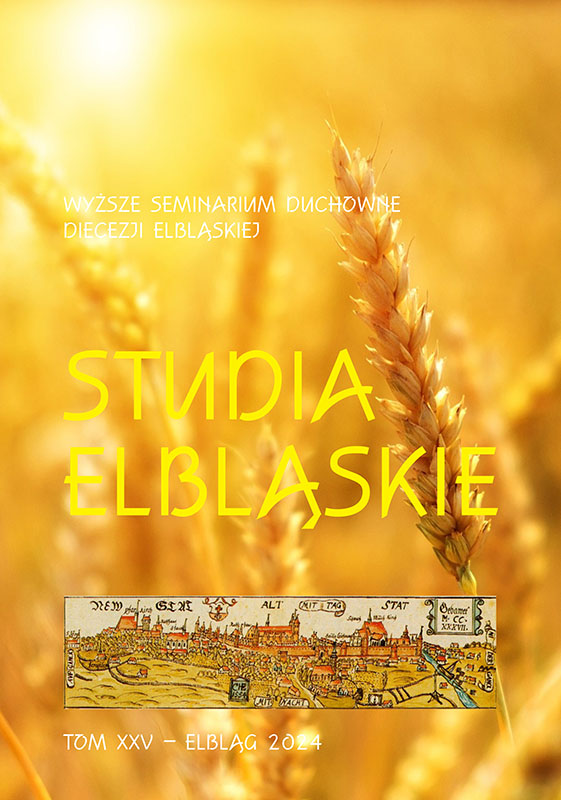
This article examines the ‘exciting opportunities and serious risks’ of artificial intelligence (AI) in the field of education. Pope Francis states that artificial intelligence ‘radically affects the world of information and communication and, by extension, certain foundations of life in society’. How should children be educated in this new existential context? The first part focuses on the growing use of artificial intelligence systems, highlighting how they can bring a significant change in the way we understand education. The second part provides guidance on how parents can use artificial intelligence in the family environment for educational purposes, using as a horizon the humanism of fraternity inspired by Francis of Assisi.
More...
The termination of a pregnancy is not without its consequences for the health and life of the woman, as well as for other persons: those connected with and involved in the decision. Medical and psychological research shows the devastation that abortion inflicts on various areas of life and the disorders it causes. There is no doubt that efforts to help those affected by abortion are a priority task for all those who can diagnose the problem (on a psychological, physical or spiritual level) and then effectively support its resolution, which psychotherapists, doctors and clergy do. This article focuses on the experience of trauma and suffering of a woman with post-abortion syndrome, the psychological consequences after the termination of pregnancy (PAD: Post Abortion Distress and PAS: Post Abortion Syndrome) and the ways to help on therapeutic grounds, especially spiritual (‘Rachel’s Vineyard’), with reference to the precious document ‘Evangelium vitae’ by Pope John Paul II.
More...
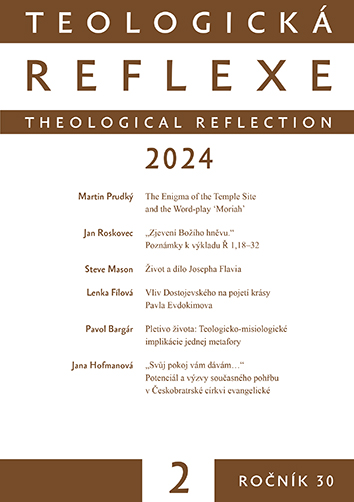
This article presents results of qualitative research (2023) and offers an interpretation of funerals in the ECCB on the basis of how the clergy themselves approach their preparation and how they perceive their role. Funeral service is seen as a ritual that, through the liturgy but also through the perceptive presence of the ministers, offers authentic participation, as well as a certain grounding in tradition and reframing of the loss experienced. Unlike civil funerals, however, the central theme is not the personality of the deceased, but the Word of God; or rather, the setting of human life in Gospel hope. According to ministers, the task is to comfort and enable bereaved to deal well with a difficult period in their lives which is easier when there is a pastoral relationship and safe space. The ministers focus on the bereaved and on their own authenticity, yet the presence of the deceased and their accompaniment is sometimes surprisingly peripheral to the whole event.
More...
In the book Maica Domnului: Taina discretei însoțiri (2022), Father Maxim Morariu emphasizes the twofold role of The Virgin Mary, as witness and as a bridge to Christ, "guided by values that determine Her unwavering fidelity and complete sacrifice" (p. 22). For this prolific writer, reading and meditation go hand in hand. This can be seen in the book Evanghelie și actualitate (2023). The 49 meditations dedicated to the Sunday Gospels together with the six occasional thoughts (do not appear) as a mere association and/or stringing together of random thoughts, but in the denouement at the end of the soul/spiritual ease of Father Maxim during the pandemic period (2020-2021). The analysis of the revealed text is accompanied by words of patristic wisdom, historical accounts and moralizing advice. Finally, with the third project, twinned with the previous one and entitled Evanghelia - editoriale în har (2023), the young author offers us a way to access the spiritual content of the Gospel or rather he urges us to feast ourselves with the eternal Word of God.
More...